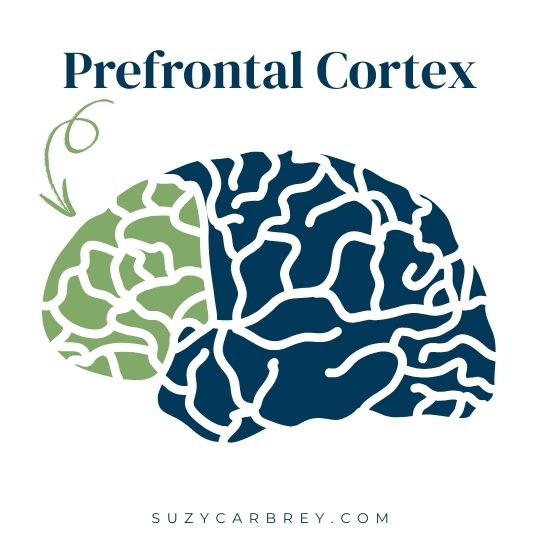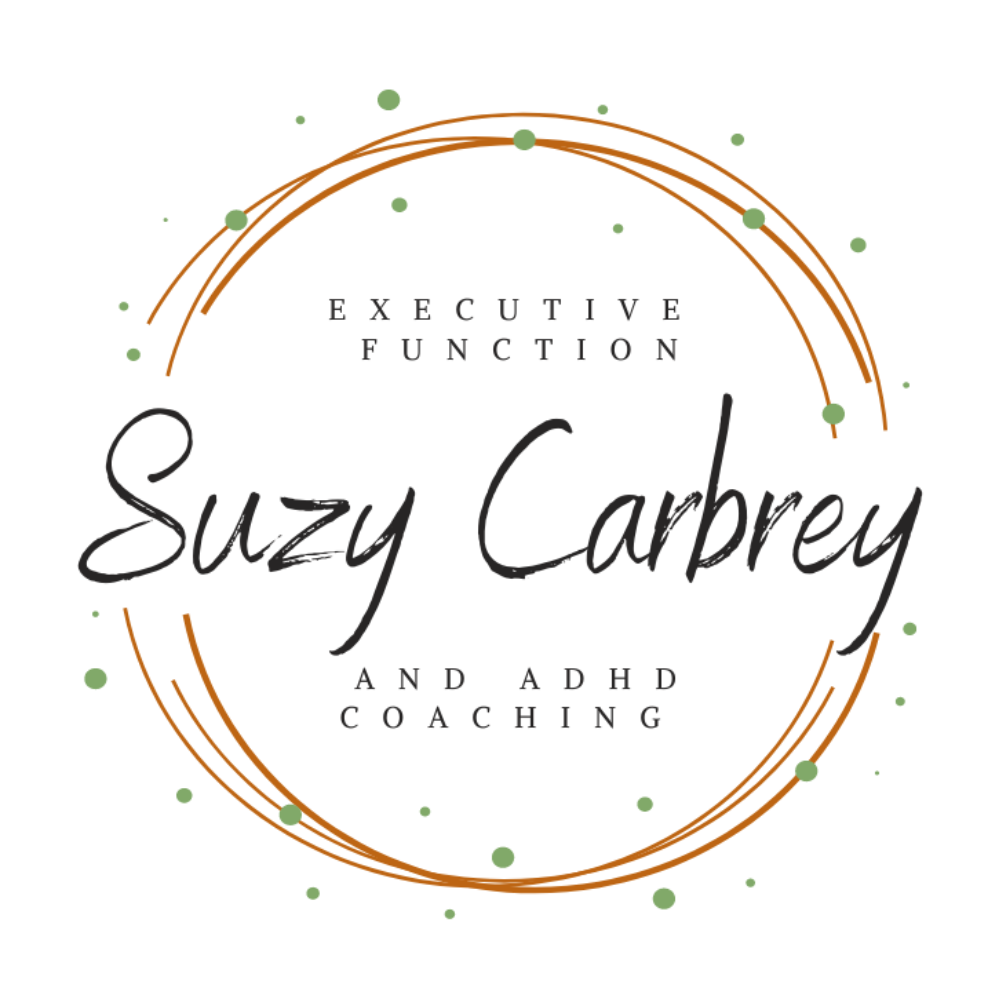If you’ve ever found yourself staring blankly at your to-do list, struggling to make a decision, or feeling completely overwhelmed by everyday tasks, you’re not alone. Many adults with executive functioning challenges experience moments where even the simplest tasks feel insurmountable. While it’s easy to assume the issue is a lack of discipline or poor time management, the real culprit often lies deeper—in your internal state.
Your internal state refers to your internal condition—your mood, energy levels, and nervous system regulation. When you’re exhausted, overwhelmed, or dysregulated, it becomes much harder to focus, plan, and make decisions effectively. Think about how much easier it is to stay on top of tasks when you’re well-rested versus when you’re running on empty. It’s not just about motivation; it’s about whether your brain is in a state that allows for productive thinking.
By learning how to regulate your internal state, you can create a stronger foundation for executive functioning. This means that improving sleep, engaging in movement, and becoming more aware of your sensory needs can have a profound impact on your ability to get things done.
In this post, we’ll explore why your internal state might be the missing puzzle piece in your executive functioning struggles and practical ways to regulate it.
The Role of Your Internal State in Executive Functioning
We’ve all had those days when everything feels overwhelming—when the to-do list seems impossible, simple decisions feel exhausting, and focusing on even the smallest task is a struggle. Now think about the times when you’ve felt well-rested, energized, and in control. The difference between these two experiences often comes down to your internal state—your mood, energy levels, and nervous system regulation.
For adults with executive functioning challenges, internal state is not just a background factor—it’s a foundational piece of the puzzle. When your internal condition is out of balance, it’s much harder to plan, prioritize, regulate emotions, or follow through on tasks. But when you actively support your internal state, you set the stage for better focus, decision-making, and self-control.

Understanding Internal State: What It Is and Why It Matters
Your internal state refers to the overall condition of your body and mind at any given moment. It includes:

- Physical energy levels – How well-rested and nourished you are.
- Emotional regulation – Your ability to manage stress, frustration, or anxiety.
- Nervous system regulation – Whether you are in a calm, alert internal state or experiencing dysregulation (fight, flight, or freeze responses).
- Cognitive flexibility – Your ability to shift perspectives and adapt to new challenges.
These factors directly impact executive functioning skills like organization, time management, impulse control, and working memory. When you are dysregulated—whether due to exhaustion, stress, or sensory overload—your executive functioning suffers.
Signs That Your Internal State Is Affecting Your Executive Functioning
If your internal state is not well-regulated, you might notice:
- Increased procrastination – Tasks feel too overwhelming to start.
- Difficulty prioritizing – Everything feels equally urgent, making decision-making stressful.
- Forgetfulness – You frequently misplace things or struggle to remember details.
- Emotional reactivity – Small frustrations feel like major obstacles.
- Impulsivity – Acting on urges without considering long-term consequences.
When your internal state is balanced, you may feel more capable, clear-headed, and in control. You can tackle tasks with more ease and recover from setbacks more quickly.
The Brain’s Response to Internal State
The brain’s prefrontal cortex—which is responsible for executive functions like planning, decision-making, and impulse control—is highly sensitive to internal state.
When we are calm and regulated, the prefrontal cortex functions optimally. But when we’re overwhelmed, sleep-deprived, or stressed, the brain shifts into survival mode, prioritizing immediate reactions over higher-level thinking. This is why, when you’re exhausted or anxious, it’s so much harder to make a plan, follow through on commitments, or resist distractions.

Your brain is conserving energy and focusing on the basics—safety, short-term relief, and emotional regulation—rather than strategic thinking or goal-oriented behavior.
How to Regulate Your Internal State for Better Executive Functioning
The good news is that your internal state is not fixed—it can be influenced through intentional practices. By incorporating habits that support nervous system regulation, emotional balance, and physical energy, you create a stronger foundation for executive functioning.
1. Prioritize Sleep
Lack of sleep is one of the biggest disruptors of executive functioning. Sleep deprivation impairs attention, working memory, and impulse control, making it much harder to stay organized and productive.
- Aim for 7–9 hours of sleep per night.
- Keep a consistent sleep schedule to regulate your circadian rhythm.
- Reduce screen time before bed to improve sleep quality.
- Use sensory strategies like weighted blankets or white noise to enhance relaxation.

2. Support Your Nervous System with Movement
Physical activity helps regulate the nervous system, increasing alertness when you’re sluggish and calming the body when you’re overstimulated.
- If you feel low energy, try activities that raise your heart rate (e.g., brisk walking, dancing, jumping jacks).
- If you feel overstimulated or anxious, try grounding exercises like deep breathing, stretching, or gentle yoga.
- Incorporate regular movement breaks throughout the day to reset your focus and energy.
3. Use Sensory Strategies to Stay Regulated
Many adults with executive functioning challenges have sensory sensitivities that impact their ability to focus.
- Adjust your environment (noise-canceling headphones, softer lighting).
- Incorporate sensory breaks (deep pressure, weighted items, chewing gum).
- Experiment with background noise (white noise, music, or silence).
4. Fuel Your Body for Cognitive Performance
What you eat directly impacts your brain’s ability to function.
- Stay hydrated, as even mild dehydration can impair cognitive function.
- Avoid excessive sugar and caffeine, which can lead to abrupt energy fluctuations.
- Keep nutritious snacks available to prevent blood sugar dips that contribute to brain fog.
5. Practice Emotional Regulation Techniques
Managing stress and emotional overwhelm is crucial for maintaining a stable internal state.
- Use deep breathing exercises (e.g., box breathing: inhale for 4 seconds, hold for 4, exhale for 4, hold for 4).
- Try progressive muscle relaxation to release tension.
- Keep a journal to process emotions and reduce mental clutter.

6. Create Predictable Routines
Executive functioning thrives on structure. When you establish predictable routines, you reduce the mental load of decision-making.
- Set morning and evening routines to create consistency.
- Use timers or visual schedules to make transitions easier.
- Automate repetitive tasks (e.g., meal prepping, and laying out clothes in advance).
7. Know When to Take Breaks
Pushing through exhaustion or overwhelm often leads to burnout. Recognizing when to pause and reset can improve long-term productivity.
- Use the Pomodoro Technique (work for 25 minutes, then take a 5-minute break).
- Step outside for fresh air and sunlight to reset your energy.
- Engage in mindful activities like coloring, listening to music, or taking a short walk.
Final Thoughts: Supporting Your Internal State for Sustainable Success
When executive functioning challenges make everyday tasks feel overwhelming, it’s easy to fall into self-blame, assuming you just need to try harder. But as we’ve explored, the issue isn’t a lack of discipline—it’s often a matter of internal regulation. Your ability to plan, prioritize, and complete tasks isn’t just about motivation; it’s deeply influenced by your energy levels, emotional state, and sensory environment.

If you struggle with executive functioning, the best place to start isn’t with productivity hacks—it’s with regulating your internal state. When your nervous system is balanced, tasks feel more manageable, decisions come easier, and overwhelm is reduced. Instead of relying on sheer willpower to push through, you can create conditions that naturally support focus, follow-through, and organization.
The good news? You don’t have to wait for the “perfect” moment to make changes. Small, intentional shifts—getting better sleep, incorporating movement, supporting your sensory needs, or creating simple routines—can have a profound impact. These adjustments don’t just improve productivity; they make daily life easier, less stressful, and more sustainable. When you focus on stabilizing your internal state, you create a foundation that allows executive functioning skills to work for you rather than against you.
So instead of criticizing yourself for procrastination, forgetfulness, or inconsistency, try shifting the question: How am I supporting my internal state? A small change in your daily habits—whether it’s a few minutes of movement, a mindful moment to reset, or an adjustment to your environment—can create a ripple effect in how you manage responsibilities, reach goals, and navigate life’s challenges.
If you take one thing away from this, let it be this: your brain isn’t broken, and it’s not working against you. It’s responding to the current conditions. The more you support your internal state, the more your executive functioning will support you in return. Real progress doesn’t come from pushing harder—it comes from working with your brain, not against it. And that shift, more than any productivity hack, is what leads to lasting change.
Learn more with Online Coaching for Executive Functioning / ADHD
Ready to gain control and enhance your executive functioning? As an experienced and compassionate coach, I specialize in providing support for executive functioning and ADHD. To embark on your journey, please reach out to me at 708-264-2899 or email hello@suzycarbrey.com to schedule a FREE 20-minute discovery call consultation.
With a background as a speech-language pathologist, I have a strong foundation in executive functioning coaching. My graduate degree program in SLP placed a significant emphasis on cognition, including executive functions, and I have years of experience in medical rehabilitation, providing cognitive-communication therapy. Additionally, I have completed an ADHD Services Provider certification program, I am Solutions-Focused Brief Therapy Diamond Level 1 certified and I am trained in the Seeing My Time® executive functioning curriculum.
Experience the convenience and effectiveness of online coaching, backed by studies that demonstrate equal results to in-person services. Parents, professionals, and emerging adults love the convenience and privacy of receiving coaching from their own homes.
Whether you reside in Chicago, Milwaukee, Indianapolis, Kansas City, or anywhere else around the globe, I am here to assist you. Schedule your discovery call consultation today, and I eagerly anticipate the opportunity to work with you!
Please note that although I am a certified speech-language pathologist, all services Suzy Carbrey LLC provides are strictly coaching and do not involve clinical evaluation or treatment services. If you require a formal speech therapy evaluation and treatment, please inform me, and I can provide appropriate recommendations.

